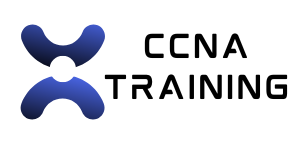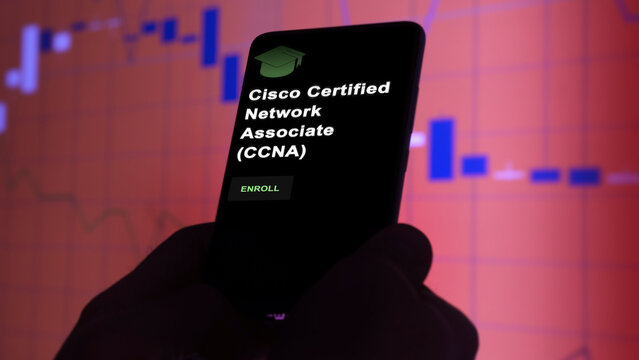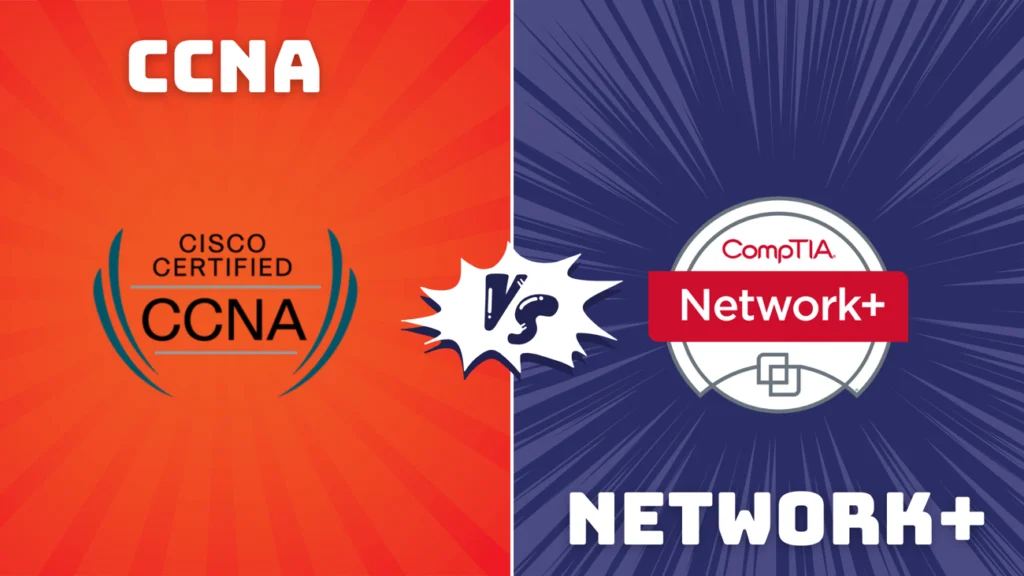CCNA, which stands for Cisco Certified Network Associate, is a widely recognized certification in the field of networking. It is an entry-level certification that validates the ability to install, configure, operate, and troubleshoot medium-sized routed and switched networks. CCNA certification is offered by Cisco, a leading company in networking and communication technology. The certification covers a wide range of networking topics, including but not limited to network fundamentals, LAN switching technologies, routing technologies, infrastructure services, and infrastructure maintenance.
CCNA certification is a valuable credential for individuals looking to start a career in networking or for those already working in the field who want to enhance their skills and knowledge. It is also a prerequisite for more advanced Cisco certifications, making it an important stepping stone for networking professionals. The CCNA certification is available in various specializations, such as CCNA Routing and Switching, CCNA Security, CCNA Data Center, and more, allowing individuals to tailor their certification to their specific career goals and interests.
Key Takeaways
- CCNA Certification is a widely recognized credential in the field of networking, demonstrating the ability to install, configure, operate, and troubleshoot medium-sized routed and switched networks.
- Benefits of CCNA Certification include increased job opportunities, higher earning potential, and the ability to validate networking skills and knowledge.
- To prepare for CCNA Certification, individuals can take advantage of study materials such as books, online courses, and practice exams, as well as hands-on experience with networking equipment.
- Career opportunities with CCNA Certification include roles such as network administrator, network engineer, and systems administrator, with potential for advancement and specialization in areas such as security or wireless networking.
- Tips for passing the CCNA exam include creating a study plan, practicing with real-world scenarios, and seeking out additional resources such as study groups or tutoring.
- Continuing education and specializations in CCNA allow individuals to stay current with industry trends and technologies, and pursue advanced certifications such as CCNP or CCIE.
- Success stories of individuals with CCNA Certification showcase how the credential has opened doors to new career opportunities and provided a solid foundation for professional growth in the field of networking.
Benefits of CCNA Certification
There are numerous benefits to obtaining CCNA certification. Firstly, it demonstrates a solid foundation in networking skills and knowledge, which is highly valued by employers. With the rapid advancement of technology, businesses are constantly seeking professionals who can effectively manage and troubleshoot their network infrastructure. CCNA certification provides individuals with the necessary expertise to fulfill these demands and stand out in the job market.
Secondly, CCNA certification opens up a wide range of career opportunities. Networking professionals with CCNA certification can pursue roles such as network administrator, network engineer, systems engineer, and more. These positions often come with competitive salaries and opportunities for career advancement. Additionally, CCNA certification is recognized globally, allowing certified individuals to seek employment opportunities not only in their home country but also internationally.
Furthermore, CCNA certification provides a strong foundation for further career development. It serves as a prerequisite for higher-level Cisco certifications, such as CCNP (Cisco Certified Network Professional) and CCIE (Cisco Certified Internetwork Expert). These advanced certifications can lead to even more lucrative career opportunities and demonstrate a high level of expertise in networking.
How to Prepare for CCNA Certification
Preparing for CCNA certification requires dedication and a structured study plan. There are several resources available to help individuals prepare for the exam, including official Cisco training courses, study guides, practice exams, and online forums. It is important to start by familiarizing oneself with the exam objectives and topics covered in the certification. This will help in creating a study plan that covers all the necessary material.
Hands-on experience is also crucial for preparing for CCNA certification. Setting up a home lab with networking equipment or using simulation software can provide valuable practical experience that complements theoretical knowledge. Additionally, participating in online forums and study groups can be beneficial for discussing concepts, asking questions, and learning from others’ experiences.
Practice exams are an essential part of preparation for the CCNA certification exam. They help individuals gauge their readiness for the actual exam and identify areas that require further study. It is recommended to take multiple practice exams to build confidence and improve test-taking skills.
Career Opportunities with CCNA Certification
| Metrics | Details |
|---|---|
| Job Titles | Network Engineer, Network Administrator, Systems Engineer |
| Salary Range | 50,000 – 100,000 per year |
| Employment Outlook | Expected to grow by 5% from 2018 to 2028 |
| Top Industries | Information Technology, Telecommunications, Finance |
CCNA certification opens up a wide range of career opportunities in the field of networking. Certified individuals can pursue roles such as network administrator, network engineer, systems engineer, and more. These positions often involve designing, implementing, and managing network infrastructure to ensure smooth operation and connectivity within an organization.
Networking professionals with CCNA certification are in high demand across various industries, including telecommunications, healthcare, finance, and government sectors. They play a crucial role in maintaining the integrity and security of an organization’s network infrastructure, making them valuable assets to employers.
Furthermore, CCNA certification serves as a strong foundation for career advancement. With the constantly evolving nature of technology, there is a growing need for skilled networking professionals who can adapt to new challenges and advancements in networking technology. Certified individuals can pursue higher-level certifications such as CCNP (Cisco Certified Network Professional) and CCIE (Cisco Certified Internetwork Expert), which can lead to more senior and specialized roles in networking.
Tips for Passing the CCNA Exam
Passing the CCNA exam requires thorough preparation and effective study strategies. One of the key tips for success is to understand the exam objectives and topics thoroughly. This involves studying each topic in depth and ensuring a solid grasp of networking concepts and principles.
Another important tip is to practice hands-on configuration and troubleshooting. The CCNA exam often includes simulation questions that require candidates to configure networking devices and troubleshoot connectivity issues. Practical experience with networking equipment or simulation software can help individuals feel more confident when facing these types of questions on the exam.
Time management is crucial when taking the CCNA exam. It is important to pace oneself throughout the exam and allocate time wisely to each question. Some questions may require more time than others, so it is essential to manage time effectively to ensure that all questions are answered within the allotted time.
Additionally, staying calm and focused during the exam is essential for success. It is normal to feel nervous before and during the exam, but maintaining composure and staying focused on each question can help individuals perform at their best.
Continuing Education and Specializations in CCNA

After obtaining CCNA certification, individuals have the opportunity to pursue continuing education and specialize in specific areas of networking. Cisco offers a range of advanced certifications that build upon the foundation of CCNA and allow individuals to specialize in areas such as security, data center networking, wireless networking, and more.
Continuing education through advanced certifications such as CCNP (Cisco Certified Network Professional) and CCIE (Cisco Certified Internetwork Expert) can lead to more specialized career opportunities and higher earning potential. These certifications demonstrate a high level of expertise in specific areas of networking and are highly valued by employers.
Specializing in a specific area of networking can also open up new career paths and opportunities. For example, individuals with a specialization in security may pursue roles such as network security engineer or cybersecurity analyst, while those with a specialization in wireless networking may pursue roles such as wireless network engineer or wireless solutions architect.
Success Stories of Individuals with CCNA Certification
There are numerous success stories of individuals who have achieved great career success with CCNA certification. Many networking professionals have used their certification as a stepping stone to advance their careers and pursue higher-level certifications.
One such success story is that of John Doe, who started his career as a help desk technician but had a passion for networking. After obtaining his CCNA certification, he was able to transition into a role as a network administrator at a leading technology company. With his strong foundation in networking principles and hands-on experience, he was able to excel in his new role and eventually pursued advanced certifications to further his career.
Another success story is that of Jane Smith, who was working as a systems engineer but wanted to specialize in security. After obtaining her CCNA Security certification, she was able to transition into a role as a network security engineer at a cybersecurity firm. Her specialized knowledge in network security allowed her to take on more challenging projects and advance her career in the field of cybersecurity.
In conclusion, CCNA certification is a valuable credential that opens up numerous career opportunities in the field of networking. With thorough preparation and dedication, individuals can successfully obtain their certification and use it as a stepping stone for further career advancement and specialization. The success stories of individuals with CCNA certification serve as inspiration for aspiring networking professionals looking to achieve their career goals in the industry.
FAQs
What is CCNA certification?
CCNA (Cisco Certified Network Associate) certification is a widely recognized credential in the field of networking. It validates the ability to install, configure, operate, and troubleshoot medium-sized routed and switched networks.
What are the prerequisites for CCNA certification?
There are no formal prerequisites for taking the CCNA exam, but it is recommended that candidates have a good understanding of networking fundamentals and basic IP addressing.
How do I obtain CCNA certification?
To obtain CCNA certification, candidates must pass the CCNA exam, which covers a wide range of networking topics including routing and switching, security, wireless networking, and more.
What are the benefits of CCNA certification?
CCNA certification can lead to increased job opportunities, higher salary potential, and the ability to demonstrate expertise in networking technologies. It is also a valuable stepping stone for higher-level Cisco certifications.
How long is CCNA certification valid for?
CCNA certification is valid for three years. To recertify, candidates can either pass the current CCNA exam again or pass a higher-level Cisco certification exam.













